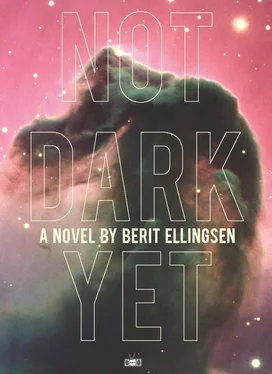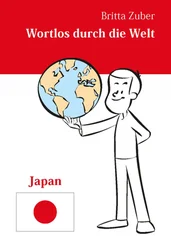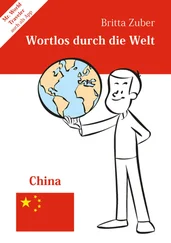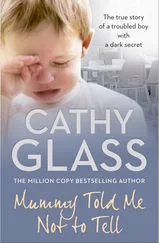Someone banged on the door. He pulled the sleeping bag around him.
“Come in!” he said and turned toward the kitchen.
Eloise stood in the doorway, knee-high rubber boots soiled to the rim, the front of her green oilskin jacket spattered with mud, her cheeks red and her eyes shining like the sun in spring.
“We’re starting,” she beamed. “Finally we’re off!”
“Want some tea?” he said.
She shook her head, too busy to stop. “Imagine, in just a few months all this will be covered by grain, ready to be harvested, to fill our stores, and to be packaged for export. And then, after the first harvest, we will be able to sow again almost immediately and have a second crop over the summer. This really is the future!”
He took the cup of water he always kept next to the mattress at night and toasted her. “To the future!” he said.
She looked at him and his naked chest, grew a little flustered, and folded her arms. “Not up yet?” she said.
“Not yet,” he said, grinning.
She leveled her eyes at him, making no signs of leaving.
He gazed up at her. “The sowing is very noisy,” he said. “How long will you be at it?”
She scoffed, turned, and slammed the door behind her.
Later in the day he received an email that the manual treadmill he ordered had arrived at the post office. He got up, washed, shaved, dressed, and ate, and emptied the large backpack. Then he walked for an hour and a half to the post office in the center of town, tied the cardboard box with the treadmill to his backpack with lengths of twine he pulled off a cone at the packing desk and cut with a flourish of the scissors that hung there. He also purchased freeze-dried camping food: beef stew, lamb stew, vegetable stew, cod terrine, pasta in tomato sauce, ground beef in chili sauce, chicken in curry, tomato soup, pea soup, and oatmeal, and met no one he knew.
When he arrived at the cabin it had already grown dark, but the distant, shivering beams and the low, steady noise from at least two engines indicated that the neighbors were still at work. Would they carry on all night as they had done during plowing? Above the cabin’s deck the sky was a black dome, pierced with stars.
Inside, he put the backpack down and untied the rectangular box fastened to it. He opened the container with the old, but still-sharp boxcutter from the kitchen drawer, and assembled the small steel construction with the simple tools that were included in the package. He had chosen a manual treadmill for easier transport, assembly, and storage. At day he could move the treadmill out on the deck and run even if it turned too muddy to jog along the fields, or if snow and ice arrived. Should he have another white-out, a manual treadmill would be safer than a motorized one.
He placed the mill by the panorama window so he could run and imagine being outside. Then he put on his trainers to test the acquisition. The oblong rubber surface had a pleasant give and moved comfortably along with his steps. He ran for almost an hour while he watched the tractors progress slowly from north to south and then back again along the plowed furrows, casting about headlights that were quickly consumed by the night. After the run he went to sleep on the mattress and dreamed that seagulls, sparrows, and blackbirds landed on him while stalks of ripe wheat grew forth from his flesh.
With the three seed drills and tractors the sowing took only a few days. Then the fields were still dark, but full of hidden, secret life, which would germinate over the winter and become sustenance, income, and a bulwark against starvation. What countless people in the world must be desiring. Seed banks and grain stores had been mentioned more and more frequently in the news. The word “stockpiling” hadn’t come up yet, but he assumed that by now most countries were saving what they could, as well as recalculating their annual yields given the new numbers for yearly average precipitation and temperature. Many nations had started rationing water to ensure that the industry had what it needed. On the internet were rumors that some countries were pumping water that had already been used once by industrial facilities into the public water network, still full of heavy metals and other toxic compounds.
It was at least clear that the food prices had increased alarmingly and that an international race to purchase arable land and sources for water had been going on for quite some time. He assumed that corporations and individuals who could afford it would not only stockpile, but create gated enclaves, like revelers in the stories about the plague, to ensure access to the most vital resources. He also wondered whether his own move from the city to the cabin, and the neighbors’ tilling and seeding, could also be regarded as such. But he thought not. It was safeguarding the future, taking active measures. Neither he nor the farmers were keeping anyone out or preventing them from leaving.
At first he enjoyed the idea of the seeds growing in the dark soil all around the cabin and turning the ancient nutrients of the earth and air into food. He dreamed of golden fields and the wind whispering in the grain, but when he realized that the first green stalks might soon peek like stubble through the substrate, he thought he hadn’t searched far enough to secure a home in the wilderness. Nevertheless, with the sowing done, the cabin was just as isolated and the nights and days as silent as before. No road had been built, nor had any of the neighbors erected new buildings or created any constructions that imposed on his land. Worse yet, he had willingly accepted the tilling and sowing and signed the farmers’ project. As when the plans had first been presented to him, he couldn’t see any drawbacks, only advantages. The project would bring food, security, and possibly a steady income. But he disliked looking at the now-cultivated land so much that he turned the sofa, the mattress, and the treadmill away from the panorama view and toward the deck and the forest and the sky that was visible through the window in the kitchen and front door.
To further distract himself from the new and unsympathetic landscape, and although he usually feigned disinterest in the culture of his father’s country, he ordered pale sand for the hearth especially selected and sieved by traditional craftsmen near the city of his grandparents. The sand originated from a beach where a historical battle had taken place and was flown to his country of residence. When the bag of ridiculously expensive sand arrived, he immediately walked over to Eloise and Mark’s to borrow a shovel, and emptied the hearth of the old and dark sand. Then he hiked through the heather to the post office, carried the new sand home, and poured it slowly into the square pit in the floor.
Like a vampire finally in possession of soil from his ancestral lands to rest in, he spread the sand out in the hearth with his palms. When that was done he spent half the night picking up the pale and fine grains, and letting them fall through his hands, again and again.
THE WEEKS PASSED QUICKLY INTO THE DARKEST days of winter. The temperature sank, but only to that of a mid-autumn. He reserved a train ticket home for Christmas, with an open return back to the mountains. Kaye’s next lecture was only a few days away. Now that he knew Kaye was alive, he hadn’t planned on attending the meeting, but as the date approached, he realized that he had no reason not to go and knew that if he didn’t he would regret it. The last time he had managed to avoid being spotted by Kaye or anyone else who might have recognized him. If he was careful about how and when he arrived and left, there was no reason in the world he shouldn’t remain unseen.
He checked the schedule online and memorized the times when the trains went back to the mountains, and ordered a ticket. When that was done he felt elated, but also guilty, since Michael would no doubt be hurt if he knew. He spent the rest of the evening buying Christmas gifts online for Michael (photography and cook books, jazz and classical music, a return trip from the city to the cabin by train), Beanie (high-end earphones, five rolls of hard-to-find analog film, a spacious memory card for her digital camera), Katsuhiro (a computer role-playing game, science-fiction films, hair and skin care products), and his parents (matching bathrobes, a stone garden lantern from his father’s country). He ordered everything gift-wrapped, attached with notes, and mailed to the post office nearest to the honeycomb towers so he wouldn’t have to carry them in his backpack home.
Читать дальше












